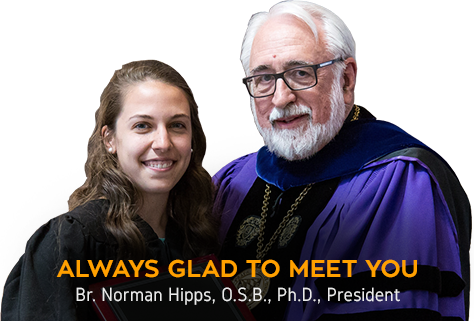In my December 2019 blog, I discussed how Santa Claus uses the management style of operational excellence to travel around the world on Christmas Eve. In keeping with the holiday theme for my December 2020 blog, I will talk about a businessperson who manages an organization and who is often associated with this season: Ebenezer Scrooge.
Of course, most everyone knows Charles Dickens’ “A Christmas Carol” story about Scrooge whether from reading it in school or viewing one of the many television, film or stage adaptations that have been produced since its first publication in 1843. Though Scrooge gets redeemed at the end of his story, he begins “A Christmas Carol” as a greedy, apathetic and uncharitable miser before being visited by three spirits who change his life. He refuses to give donations to less privileged individuals and suggests that they either find work or perish. He detests Christmas and acknowledges it only through its financial impact. He treats Bob Cratchit, his only employee, poorly by underpaying him, making him work extreme hours including holidays and not assisting him with care for his son’s health. And Scrooge seems to live his life with no joy.
Fictional stories often influence peoples’ perceptions of real-world business leaders (Urick, Gnecco, Jackson, Greiner & Sylada, 2015), so it is quite likely that there may be negative impressions of businesspeople resulting from familiarity with Scrooge’s story. While some might argue that unethical practices seem to be the norm for many businesses and their leaders, there are many examples of ethical businesses and decisions (Ethispshere, 2020; Moore, 2020). Of course, decision-makers use different ethical frameworks to make their choices (Wilkens, 2011) and, indeed, some people may disagree with the decisions that many businesses (even those labeled by others as ethical) may make. And certainly, improper social responsibility and negative treatment of employees similar to the management style of Scrooge do happen more often than they should.
So, how can organizations and business leaders ensure that they do not make decisions that Scrooge (at the beginning of his story) would support? How can they be more like exemplary ethical businesses? Below are a few ideas heavily influenced from a document entitled “Vocation of the Business Leader” published by the Dicastery for Promoting Integral Human Development (2018).
- Scrooge is focused almost exclusively on making money at the beginning of “A Christmas Carol.” His business does not seem to exist to serve a broader purpose than that. But, the true purpose of a business should be to provide a product or service in an ethical manner that helps to improve others’ lives. There is nothing wrong with making money, but only if it is done in a moral way and if a business has a mission and vision of service to others that goes beyond just financial gains.
- Scrooge is cruel to Bob Cratchit early in “A Christmas Carol.” But, employees should be treated with respect and dignity. This means that workers should be paid appropriately according to best practices in setting compensation (Mathis, Jackson, & Valentine, 2015). It also means that full-time employees should have paid time off, have a reasonable workload that does not require an extreme number of hours to complete and be provided with the means to care for their families. Furthermore, they should feel valued.
- Scrooge is also not charitable at the beginning of his story. But, organizations and their leaders should contribute to the well-being of their communities. Some examples for how they might do this could include volunteering for non-profits, making monetary contributions to community events and engaging in initiatives related to the values held by their employees. Pope Francis’ “Laudato Si” encyclical (2015) also suggests that business leaders consider the impact of the decisions that they make on the poor (Urick, Hisker & Godwin, 2017).
- Lastly, Scrooge has very little joy in his life until he comes to realize the meaning of Christmas. He works hard but finds little true meaning in it. Yet, work is a form of prayer (McTaggart, 2003). As such, people can find both meaning and joy in their work. Because work is an act of creation that can contribute to the common good, it is a noble endeavor to both ethically lead and serve others in a business context. People can take joy in knowing this.
Ultimately, at the end of “A Christmas Carol,” Scrooge does find his way and turns his life around. He treats Cratchit better, he contributes more to society and he becomes more charitable. Moreso, he learns the true meaning of Christmas.
I wish you all a blessed holiday season. Merry Christmas, Happy New Year and Happy Holidays.
I always love hearing from you! Have you ever had a manager who was like Scrooge (no names, please!)? Was he/she able to change his/her managerial approach over time? What characteristics or behaviors do you believe can make businesses non-Scrooge like? Email me at michael.urick@stvincent.edu or get in touch with me on social media; Facebook, LinkedIn, or Twitter.
Dr. Mike Urick
Dicastery for Promoting Integral Human Development. (2018). Vocation of the business leader. Vatican City/University of St. Thomas.
Dickens, C. (1843). A Christmas carol. In prose. Being a ghost story of Christmas. Chapman & Hall.
Ethisphere. (2020). The world’s most ethical companies. Accessed on Nov. 30, 2020 from https://www.worldsmostethicalcompanies.com/.
Francis, P. (2015). Laudato si: Care for our common home. Pauline Books & Media: Boston, MA.
Mathis, R. L., Jackson, J. H., & Valentine, S. R. (2015). Human resource management: Essential perspectives. Cengage Learning.
McTaggart, L. (2003) Work. In The Benedictine handbook. Liturgical Press, 114–118.
Moore, B. D. (2020). 10 great examples of ethical decision-making in business. Great work life. August 22. Accessed on Nov. 30, 2020 from https://www.greatworklife.com/ethical-decision-making-in-business-examples/.
Urick, M. J., Gnecco, J., Jackson, D., Greiner, M., & Sylada, S. (2015). Perceptions of business leaders: An examination of portrayals in U.S. motion pictures. Journal of leadership and management, 3(5-6), 11-22.
Urick, M. J., Hisker, W. J., & Godwin, J. L. (2017). Management response to Laudato si: An operational excellence perspective. Journal of biblical integration in business, 20(2).
Wilkens, S. (2011). Beyond bumper sticker ethics: An introduction to theories of right and wrong. Intervarsity Press.


 中国学生
中国学生 Estudiantes
Estudiantes




